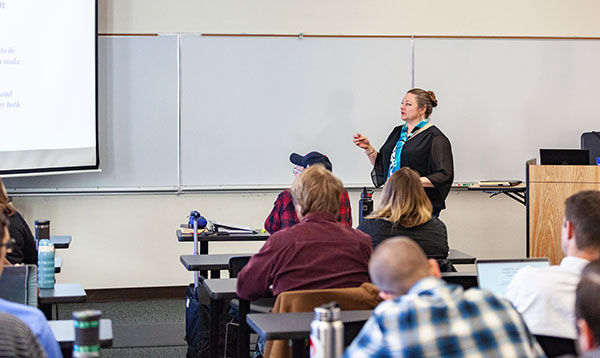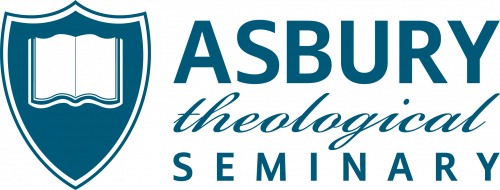Maria Russell Kenney
Ph.D., Durham University, 2017.
Last updated: September 23, 2019

The average person makes about 35,000 choices per day, and in a world filled with more ambiguity than not, Dr. Maria Russell Kenney seeks to make these decisions with the eyes of Christ. She grapples with questions about modern-day slavery, abortion, immigration, and the relationship between medicine, technology and ethics. In her classes, Dr. Kenney helps students put action to their theology to live out their faith in thoughtful, practical ways.
“Everybody makes decisions about how to live and what kind of person to be,” Dr. Kenney said. “That perspective might be flavored by a particular religious setting or where we’re from, but studying ethics and learning how to think about morality is something that we have to do no matter what we do in our lives.”
She raises questions, such as “Are we acting this way because it’s cultural or because we can back it up with a biblical foundation?” “Who grows our cheap food?” “How and why can we afford to buy inexpensive clothing?”
“Is it because of someone we don’t see who makes it happen?” she asked. “Are they made in the image of God? And if we think they are, then the church needs to be the one who says they are. Not because the church is afraid of progress, but because human beings can’t be commodified.”
Dr. Kenney has always believed it’s important to put action behind your beliefs. While she was in high school, her school started requiring random drug testing. She protested the illegal searches to the school board. In college at Texas Tech, she worked at the Texas Tech Wesley Foundation and participated in several mission trips, seeing many ways that evangelism and social action worked together. After graduating, she moved to Kentucky to work at the Appalachia Service Project, a Christian ministry that uses volunteers to repair and replace homes in central Appalachia.

“I was drawn to doing housing work in Appalachia because I thought people shouldn’t freeze because they’re poor,” she said. “After living in Appalachia, I became interested in what made them poor and the history of the region.”
Coupling belief with action is important to Dr. Kenney, and after graduating from Asbury Seminary in 2002, Dr. Kenney pursued a Ph.D. at Durham University, writing her dissertation on the virtue of temperance. She studied ways to integrate the bodily desires of alcohol, food, and sex into the whole of an individual’s life. While some suggest repressing these desires, she looked for ways to order these desires harmoniously.
“I like to think deeply about things like justice,” she said. “How do we get that from our ideas of God? How does our theology affect how we live? If we think that God is a nurturing God, how should that affect our society?”
Dr. Kenney teaches a variety of classes, including Christian Ethics, Theology of the Body, and Women in Church and Society. In her recent class, Women in Church and Society, Dr. Kenney and her students examined the scripture passages about male headship. For Dr. Kenney, the point of the class was not to convert anyone to a particular point of view, but to encourage students to consider a perspective they may not have thought about previously.
“Some folks came away with this deeper sense of thinking more carefully about why I do what I do and whether I’m living a life that’s morally coherent,” Dr. Kenney said.
Dr. Kenney is currently part of the Open Door Church, a neighborhood parish in Lexington, Ky. She has participated in various forms of ministry for over 25 years, including campus ministry, low-income housing repair and advocacy in central Appalachia, residential work with emotionally disturbed adolescents, international medical relief work, and 17 years of pastoral and missional involvement in local congregations. Her publications include articles in the Dictionary of Scripture and Ethics and the T & T Clark Companion to Christian Ethics, as well as contributing to and co-editing the upcoming Practicing the Kingdom: Essays in Honor of Christine D. Pohl.

Prepare for the Call
Learn more about how Asbury Seminary can help prepare you for your call. Fill out the form below to get started!





